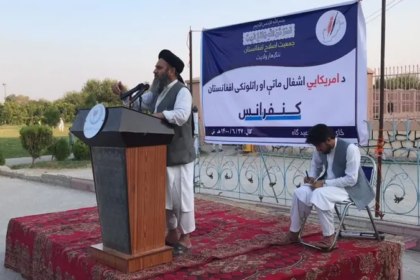RASC News Agency: In a move that underscores the Taliban’s deepening hostility toward freedom of expression and access to information, the Ministry for the Promotion of Virtue and Prevention of Vice has announced increased surveillance of social media platforms across Afghanistan. In an audio statement aired by the Taliban-controlled National Television on Monday, May 12, regime spokesperson Saif-ul-Islam Khyber warned that all “unethical or illegitimate” use of social media would be subject to legal prosecution. Khyber, speaking with the tone of ideological absolutism that has become the regime’s hallmark, declared that no individual or institution is permitted to use online platforms for purposes deemed “immoral” or “contrary to Islamic values.” He insisted that social media must be restricted to the dissemination of “verified information,” the promotion of religious teachings, and the reinforcement of “Islamic unity.” Anything beyond that including satire, dissent, or cultural content is seen as a threat to their vision of a rigid, intolerant society.
This declaration forms part of a larger and deeply troubling strategy by the Taliban to monopolize digital discourse and criminalize independent thought. Under the guise of protecting “moral values,” the regime is systematically eroding the last vestiges of personal freedom in Afghanistan’s online space transforming the digital world into yet another arena of fear, surveillance, and repression. Khyber further asserted that the Taliban would utilize every “legal authority and resource” to monitor and penalize online users or platforms accused of spreading content that allegedly “undermines public belief, corrupts social thought, or disrespects Islamic values.” His remarks extended beyond national borders, with a chilling warning to Afghanistani citizens living abroad: even they, he claimed, would be held accountable for how they use digital platforms.
Such statements reflect the Taliban’s increasing obsession with ideological conformity and their intention to weaponize morality as a tool of control. In reality, the Taliban’s digital censorship is not a defense of religion but a tactic of authoritarianism designed to silence opposition, obscure truth, and perpetuate their rule through fear and disinformation. The Taliban’s war on digital rights has already manifested in severe restrictions on journalists, independent media outlets, and civil society organizations. Many reporters have faced threats, arrests, and torture for the simple act of reporting truthfully. Now, ordinary social media users many of whom use these platforms for livelihood, self-expression, or connection are being placed under the microscope of a regime that equates criticism with sedition.
In a previous decree, the same ministry banned the publication of images depicting living beings, an edict that effectively outlaws the visual language of social media. This ban strikes at the heart of digital culture and signals a broader Taliban ambition: to erase visual memory, silence stories, and dismantle any space for Afghanistani identity outside their ideological straitjacket. Under Taliban rule, the internet is no longer a tool of connection but a frontier of control. The regime’s crackdown on online freedoms is occurring in tandem with the collapse of women’s rights, the suppression of artistic and intellectual life, and the suffocation of civil society. For a generation of young Afghans raised in a globally connected world, these restrictions represent a devastating rollback of hope, dignity, and human potential.
Far from promoting Islamic values, the Taliban are desecrating the fundamental teachings of Islam, which emphasize justice, compassion, and the pursuit of knowledge. Instead, the regime is constructing a digital prison where surveillance replaces service, where censorship masquerades as morality, and where fear is the only freely distributed commodity. As the Taliban accelerate their campaign to dominate digital space, the international community must recognize this for what it is: a war on truth. The absence of robust condemnation and meaningful action from global actors risks emboldening the regime further. Afghanistan’s internet users already marginalized, traumatized, and voiceless cannot afford another betrayal.
If unchecked, the Taliban’s repressive grip on digital freedoms will extinguish the last channels of resistance, silence independent reporting, and erase the voices of millions who continue to defy tyranny with tweets, posts, and truth. The world must not look away.






